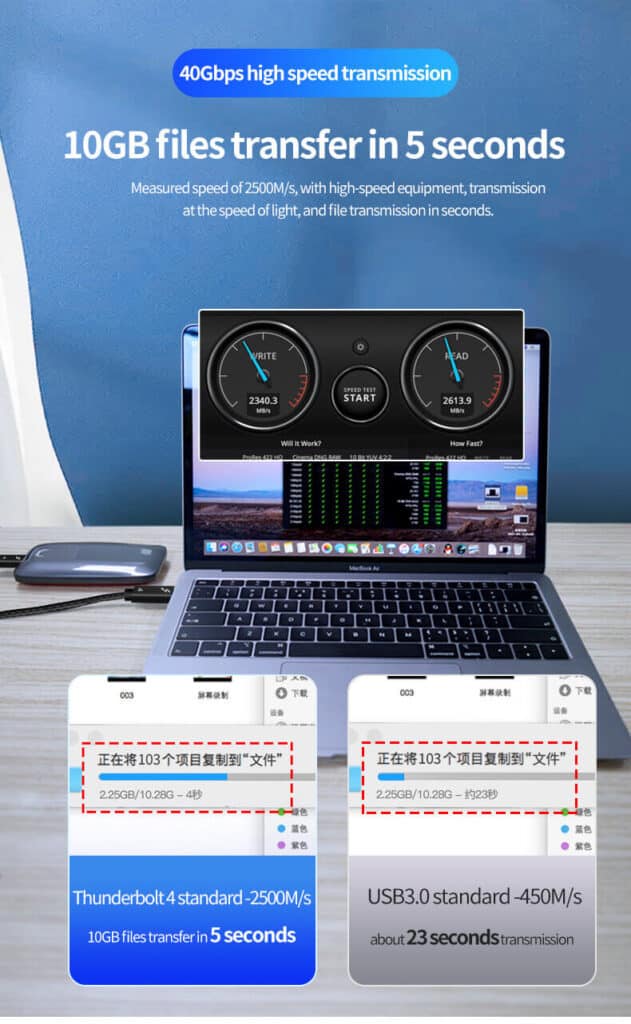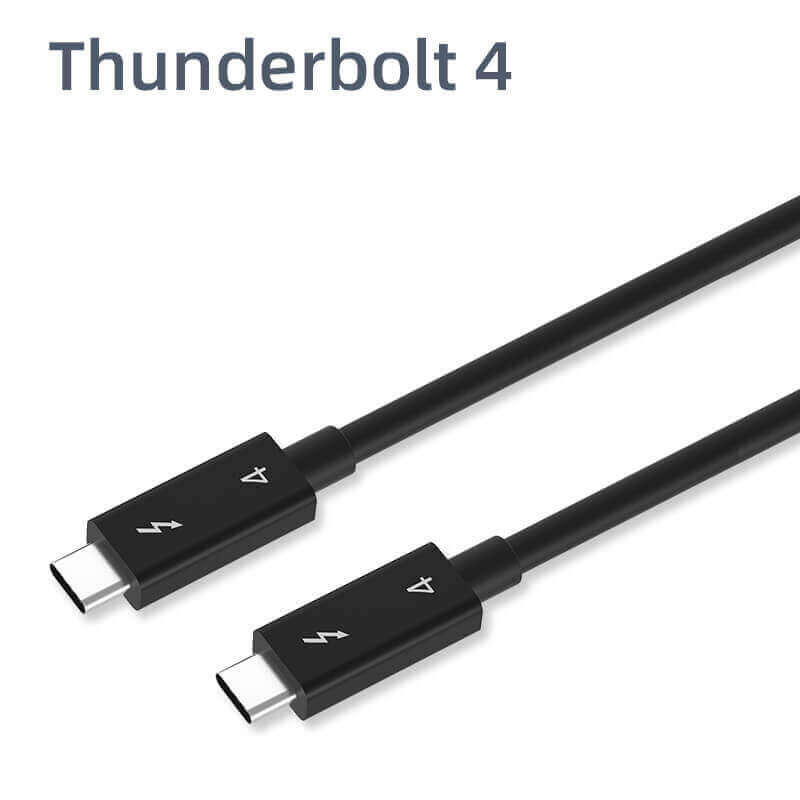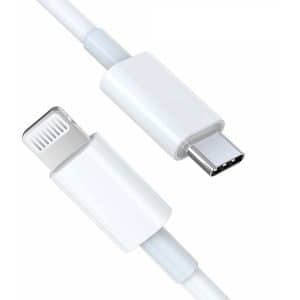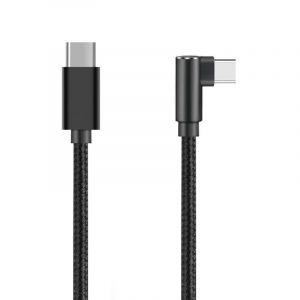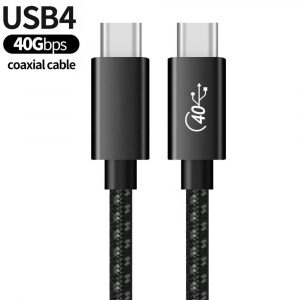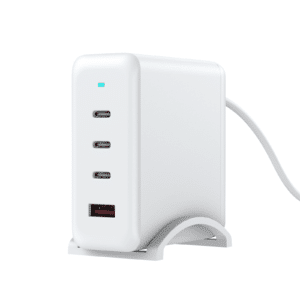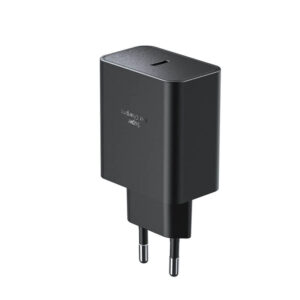Introduction
USB4, short for Universal Serial Bus Generation 4, is the newest USB standard announced by the USB Implementers Forum (USB-IF) in August 2019. Based on Intel and Apple’s Thunderbolt 3 technology, USB4 offers data transfer speeds up to 40 Gbps, double the rate of its predecessor, USB 3.2 Gen2x2. But what exactly makes USB4 stand out, and how does it compare to earlier standards? Let’s dive in.
1. Blazing Fast Data Transfer Speeds
- USB4 supports up to 40 Gbps data transfer, making it ideal for high-speed tasks like transferring large files, streaming 4K or 8K videos, and using external GPUs.
- Devices are available in two versions: 20 Gbps and 40 Gbps. Check specifications carefully before purchasing to ensure you’re getting the speed you need.
2. USB-C Connector Requirement
Unlike earlier USB standards, USB4 exclusively uses the USB-C connector, ensuring a reversible, universal connection for all devices.
3. Support for USB Power Delivery (USB PD)
USB4 mandates support for USB PD for fast charging and powering devices, with a maximum power output of 240W.

4. Enhanced Compatibility with Thunderbolt 3
Many USB4 devices are compatible with Thunderbolt 3, allowing seamless integration with a wide range of peripherals. However, this compatibility is optional and depends on the device manufacturer.
5. Support for DisplayPort and PCI Express Tunneling
Compared to USB 3.2, USB4 allows the creation of DisplayPort and PCI Express tunnels, dynamically sharing high-speed links across multiple device types for optimized performance.
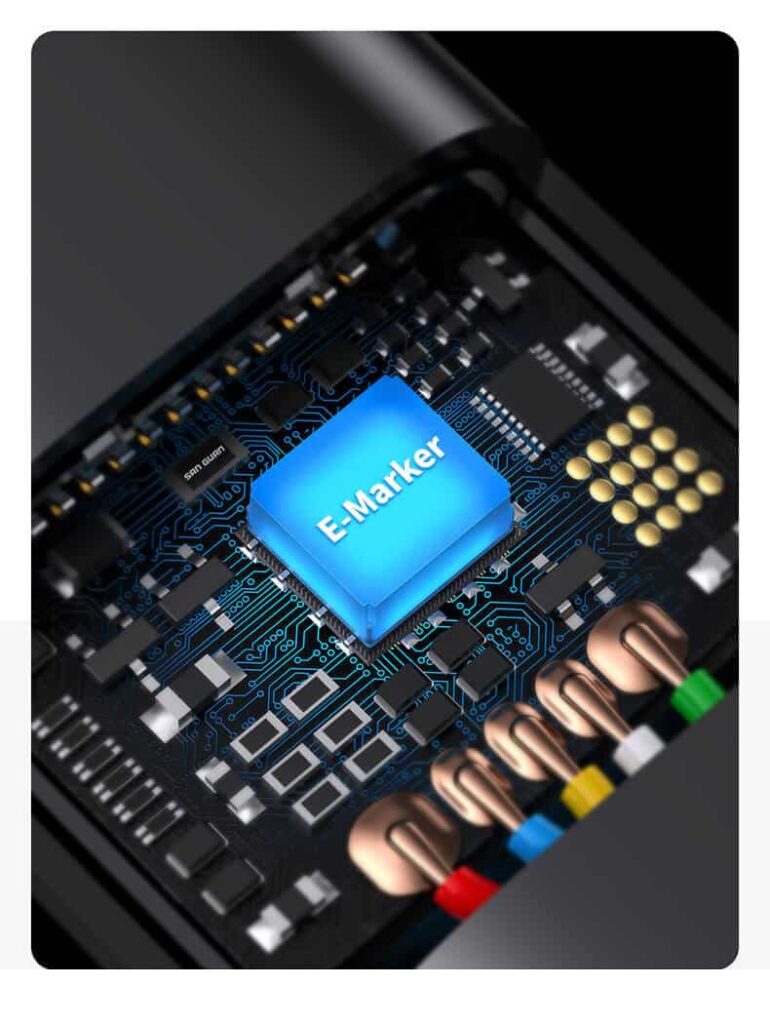
6. Backward Compatibility
USB4 is backward compatible with USB 3.x and USB 2.0 devices, ensuring a smooth transition for users. However, older devices will not benefit from the full 40 Gbps speed.
Many people confuse USB4 with Thunderbolt 4. While they share similarities (both based on Thunderbolt 3), here’s a quick comparison:
- Interface: Both use the USB-C connector.
- Maximum Speed: Both offer up to 40 Gbps data transfer rates. Thunderbolt 4 offers a maximum bandwidth of 40 Gbps, while USB4 can offer either 40 Gbps or 20 Gbps depending on the cable.
- Compatibility: Thunderbolt 4 includes stricter compliance and mandatory features (like dual 4K monitor support), whereas USB4’s implementation may vary between manufacturers.
- Charging power: Based on the charging power, both can support 240W at most, yet the minimum standard for USB4 has decreased to be 7.5W, while Thunderbolt 4 is 15W.
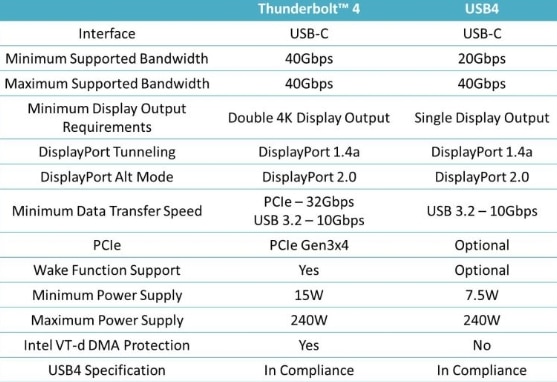
A Brief History of USB Standards
The USB transmission protocol dates back to 1994, developed by companies like Compaq, DEC, IBM, Intel, Microsoft, NEC, and Nortel. The first version, USB V0.7, was released in November 1994, followed by the establishment of USB-IF in 1995 to promote and support the standard.
Milestones:
- USB 1.0 (1996): 1.5 Mbps transfer speed.
- USB 2.0 (2000): 480 Mbps, still widely used today.
- USB 3.0 (2008): 5 Gbps, later renamed USB 3.1 Gen1.
- USB 3.1 (2013): 10 Gbps, renamed USB 3.1 Gen2.
- USB 3.2 (2017): Up to 20 Gbps, with Gen2x2 mode.
- USB4 (2019): 40 Gbps, backward compatibility with earlier standards.
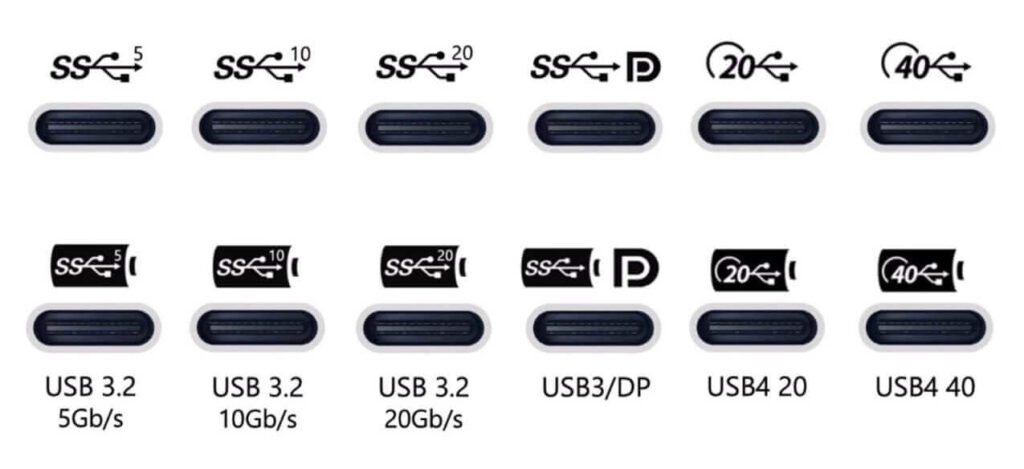
Naming Simplification
The official name is USB4 (no space), marking a departure from version numbers like USB 4.0. This shift aims to focus more on branding than incremental iterations.
Why is USB4 Important?
USB4 represents a leap forward in data transfer, power delivery, and connectivity. Its high-speed capabilities, streamlined design, and compatibility with existing standards ensure it will serve as the backbone of modern device communication for years to come.
With USB4, users can expect:
- Faster file transfers and charging.
- Seamless integration with high-performance devices.
- Simplified connections with a universal USB-C standard.

Conclusion
USB4 is a game-changer in the world of data transfer and connectivity. Intel’s decision to contribute Thunderbolt 3 technology to USB-IF is expected to drive faster market adoption, it addresses the needs of modern users who demand speed, reliability, and versatility. Whether you’re a tech enthusiast or a casual user, USB4 is set to revolutionize how we connect and power our devices.
For more updates on USB technology and its applications, stay tuned to our blog!
Related Products
Wandkey Electronic Co.,Ltd is a specialized manufacturer of phone accessories, including MFI Certified iPhone Lightning Cables, USB Type-C Cables (2.0/3.0/3.1/3.2 Gen 2/USB4), Micro USB Cables, PD Fast Charging Gan Wall Chargers, Car Chargers, and more. Our products are UL/CE/RoHS/FCC/UKCA certified, ensuring the highest level of quality and safety. supports OEM/ODM service, printing logo, customized packaging, color, length, mould etc. Welcome to contact us get the quotation and samples for the test.
Any questions feel free to contact us, we would be happy to solve your issues
Top Topics
2024 Latest MFi Authorized Manufacturers list
Differences of Lightning Connector
How to check MFI Certification
How to get MFI Certification for Your Brand?
Why does the MFI Certified Lightning Cable so expensive?
MFI Product Packaging Requirement?
Disassemble MFI Lightning Cable
How do we guarantee the quality?
How to identify counterfeit or uncertified Lightning connector accessories
How to Choose Fast Charging Cable for Your Phone
How do I choose a USB-C cable?
Differences between USB 3.0 3.1 and 3.2
Test on USB C to USB C 3.1 Cable

